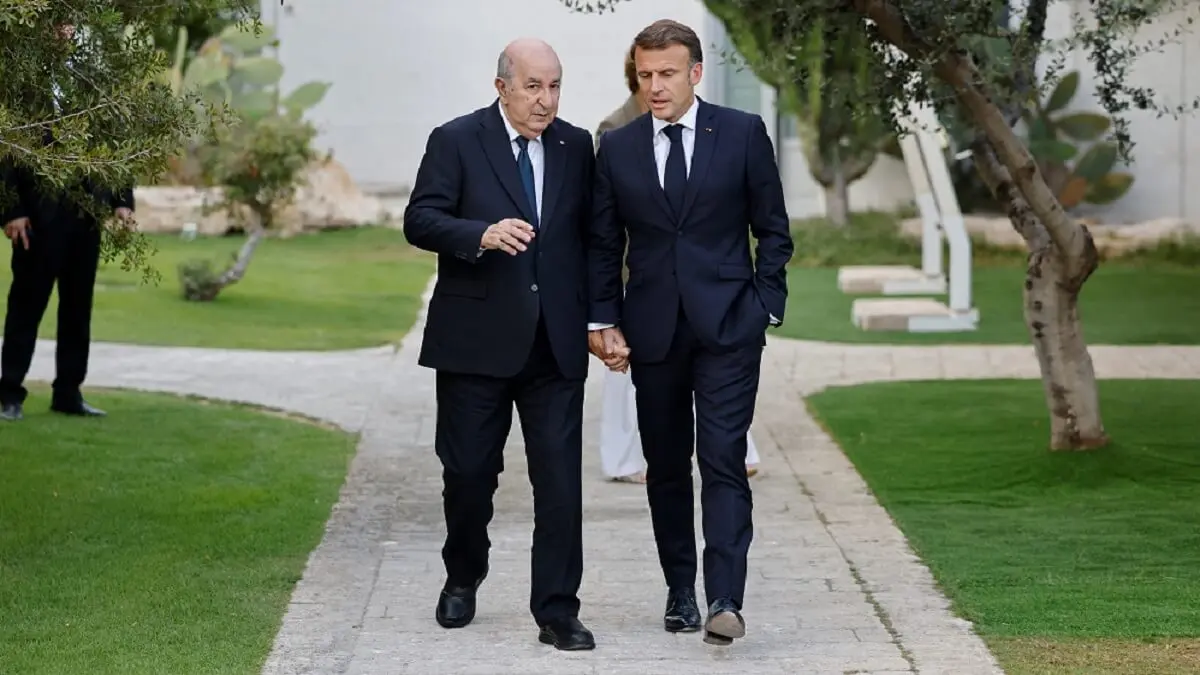The Sahara conflict and the aftermath: can Algiers put pressure on Paris to back down?

Analysts, diplomats and experts on Euro-Maghreb affairs are wondering what Algeria can do to '"punish" France for this previously announced measure, which Algerian President Abdelmadjid Tebboune learned about during his meeting with the French president on the sidelines of the G7 summit in Borgo Egnazia, in the Italian region of Puglia, a month and a half ago thanks to the personal mediation of Italian President Giorgia Meloni. Algeria knew that Enmanuel Macron was serious, and did not do or say anything.
Let us make a few considerations. First of all, Algeria should not, cannot, and will not, call into question the commercial, economic and financial contracts already signed and in force between Algiers and Paris. Algiers is gambling its prestige and credibility on the international market, which is sensitive to these ups and downs, and it knows it.
The only contract that might not be renewed (as was the case with the Spanish contract via Morocco for the Maghreb-Europe gas pipeline in October 2021) is the one signed in July 2022 between the French company ENGIE and the Algerian company SONATRACH, whereby Algeria supplies France with nearly ten billion cubic metres of gas in two forms, liquefied gas (LNG) at its Fos sur Mer terminal, and natural gas via the Spanish-Algerian MEDGAZ pipeline.
Algeria could certainly decide not to renew the contract with France, but the impact on the French economy would be minimal. Algerian gas accounts for 8 per cent of French consumption (Algeria's share of the total 16 per cent of gas in the primary energy package, in which French nuclear energy accounts for 40 per cent and oil 28 per cent), and is substitutable with gas from other suppliers, such as the United States and Norway, the main suppliers to Europe, Britain, Nigeria, Egypt, Qatar and others. Algeria will not use "the natural gas supply weapon", and if it did, it would be the North African country that would suffer the most.
In other trade areas, Algeria could consider cutting imports of French cereals and replacing them with Russian cereals, which would have little impact on French exports, for which there is no shortage of particularly African customers.
The Franco-Algerian trade balance in 2023 amounted to nearly 12 billion euros in trade (Italy reached 24 billion euros in trade with Algeria, and Spain 9 billion euros). In a hypothetical bilateral standoff, Algeria would risk losing or freezing the accumulated 2.56 billion euros of French direct investment in the country, mainly in financial and insurance activities, manufacturing and extractive industries, the main beneficiaries of which are Algeria.
As for possible political and diplomatic retaliation, Algeria, like any other African or Maghreb country, does not have the capacity to deal with a prolonged crisis with France. Hints of using the anti-terrorist, military or security vector, as well as the migration component, appear to be mere gesticulations. Algeria's influence on the international stage is limited to a few countries in Asia, Africa and Latin America; its failure to join the BRICS shows this. It would in any case be a minor problem for France.
As for the more than likely suspension of Abdelmadjid Tebboune's official trip to Paris next autumn, following his expected re-election to the presidency in the elections scheduled for September, it would only be seen as a symbolic gesture with an internal character and little international significance.
In any case, French diplomacy is expected to step up its efforts to try to convince the "friends of the Polisario Front" to open up to dialogue and negotiation with Morocco so that the independence movement in particular and the Sahrawi population in general have a say in the region's future. The Franco-Algerian crisis thus seems to be just a summer storm.

